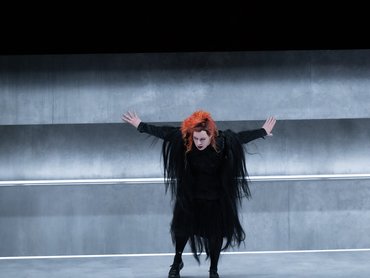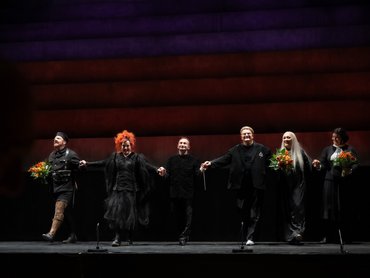Übersicht
Is it still possible to discover something new in a work that almost everyone knows? We answer this question with Jan Lisiecki. The pianist will play Beethoven’s Third Piano Concerto with the Berliner Philharmoniker and conductor Tugan Sokhiev.
What do you think lies at the heart of Beethoven’s Third Piano Concerto?
Beethoven’s Third Piano Concerto is in C Minor, a key that is by nature quite dark. What Beethoven does is to transform it from this dark and rather foreboding music to C major at the end - to beauty, to joy. And that transformation happens gradually, over the course of three movements. We have quite a journey. We have a serene second movement. The beginning of the Rondo, the third movement, is quite energetic. There's a phenomenal cadenza in the first movement written by Beethoven himself; this is music on the cusp of romanticism. Beethoven is still really in the classical world, but pushing the boundaries - as he was wont to do. And it's such a pleasure to explore that.
Is there a certain challenge to performing a piece that is so well-known?
Performing music that is known to me, to the musicians in the orchestra and to the conductor, as well as to the audience is, on the one hand, a challenge. It’s a responsibility, most definitely, but it is also a wonderful opportunity, because you can peel away the layers of tradition that have accumulated over the years. Some performance practices might have little merit based on the score. You can really rediscover some things that are pure - things that of course I imagine the composer intended. Tugan Sokhiev shares that vision. He’s very clear about respecting Beethoven’s intentions as they are written in the score, and not letting ourselves give in to emotion. That then means that the music speaks for itself. And I think that purity has a wonderful effect on the audience.
Do you still discover new things in the piece?
You can always discover new elements in music. That’s the beauty of this profession. You cannot attain perfection; it doesn’t exist. You're always searching for the next thing, the next best idea that comes to you at home when you’re working on the music. Sometimes it comes in rehearsal, but most often those brilliant ideas come in concert, when something just happens by chance. A different concept appears in your mind. And of course, most importantly, you're also inspired by your fellow musicians, your colleagues on stage, who have their own inspirations, and also have brilliant new ideas. When that happens, you create something in the moment. Music is a living art, and that means that you're constantly rediscovering it.

